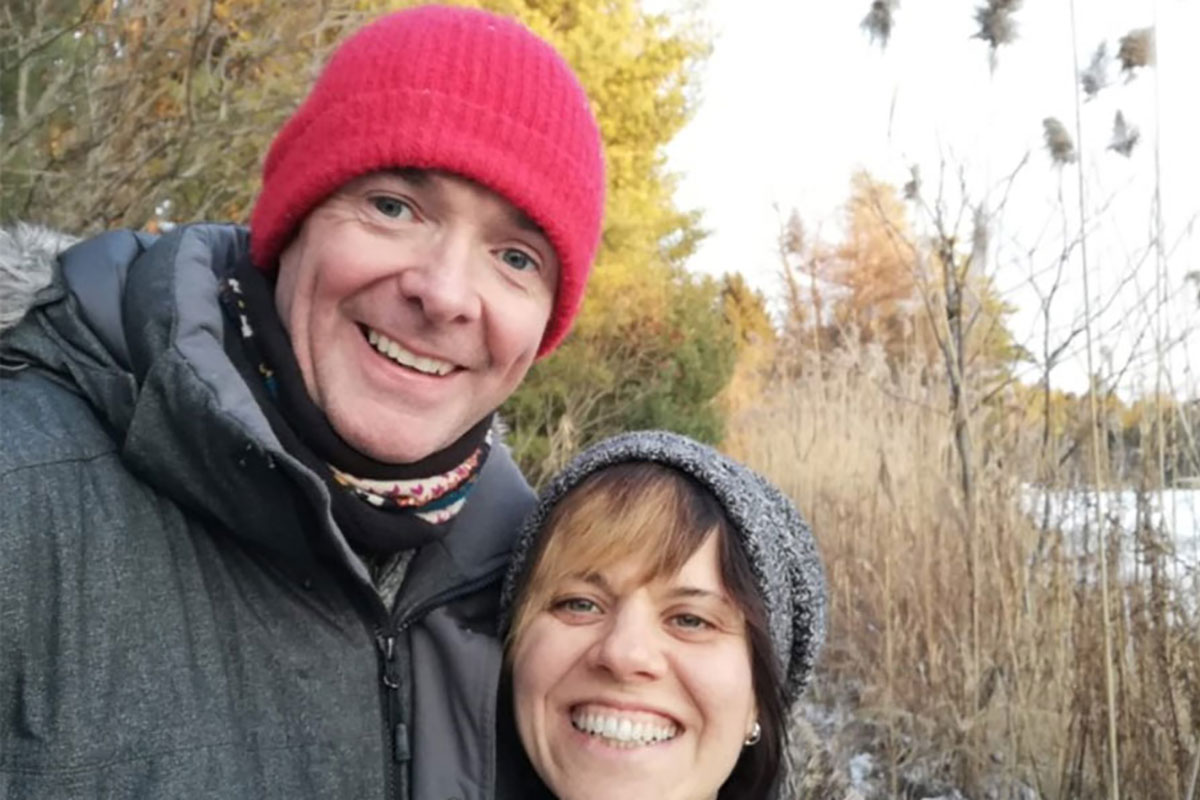I really like this quote that I read and I think it sums up what happens around change.
“In our rapidly changing society we can count on only two things that will never change. What will never change is the will to change and the fear of change. It is the will to change that motivates us to seek help. It is the fear of change that motivates us to resist the very help we seek. —Harriet Lerner, The Dance of Intimacy” (from “The Will to Change: Men, Masculinity, and Love” by bell hooks)
Now that we’re well into the new year, some people have come face to face with the changes they’ve wanted to make this year. How has it been for you? Have any resolutions taken their first slip yet? I personally find January a hard month on my mental and physical health. I notice my mood tends to be lower energy and is accompanied with anxious thoughts and feelings more so than other times in the year.
This is perfectly normal and happens to a lot of people at this time of the year. We can all understand that change and growth is a good thing. It’s why many of us set resolutions in the first place. But that begs the question: If change is such a good thing, why does it feel so difficult and damn painful at times? And it makes me ask myself why do I and many other people fall into a sort of rut this time of year.
A big change
One of the biggest changes in my life happened when my partner and I moved from Ireland to Toronto on January 4th, 2014. Seems strange to think it was six years ago. It was really hard to give up our nice apartment, and everything in it,save a couple of backpacks of clothes. It was really hard to say goodbye to friends and family and head to the airport, not really sure what the future would hold.
As I write this, I am aware of how interesting it is to explore where this need to change and grow comes from both within myself and others. For me, it was a case of having access to opportunity, a sense of fatigue with the status quo in Ireland at the time and perhaps a fear of missing out that encouraged me to move to Canada. Even though I had a steady job in Dublin, there was the promise of a better social system, adventure and new experiences that felt more alluring than the security of my job at the time.
I had hopes of experiencing Canadian life and getting away from the austerity measures that were really impacting the people I worked with in Ireland. The youth centre and homeless organisation that I worked for were becoming overloaded and I was burnt out from protesting over the government cut backs without any changes. It wasn’t until a few years later that I learnt about activism burnout and how to avoid it. I was interested to see what the social system was like in Canada and knew that I could learn a lot by working in another country. Some people I knew described the Canadian visa as the “golden ticket” and I was somewhat aware of the colonial history of Canada so I had mixed feelings about all of this. I also knew that I had learnt a lot and grown since I changed from engineering to youth and community work/psychotherapy and hoped that I could learn more by living in another country and having experiences that put me outside my comfort zone.
Dublin airport the first week in January is one of the most emotional places I have ever been to. Ireland has a long history of people emigrating for a variety of reasons, and there is something tangible in the airport that is hard to fully describe. I think there is a mixture of excitement, hope, sadness and concern that is written on the faces of everyone at the airport. I was choosing to leave for adventure and for the experience of travelling, and was hopeful I would have good opportunities in Canada, but I was still sad to leave friends and family, and worried in case it did not work out.
It was a steep learning curve those first few months figuring out how the systems worked in Canada. Setting up a new bank account, getting a Canadian drivers license, a Social Insurance Number, paying Hydro (which is not water charges like I assumed but electricity), buying a car and getting insurance were all just a bit different than the way I was used to doing these type of things in Ireland. I got to experience a polar vortex, learn how to not slip constantly while walking on ice, how to drive in the snow, make new friends and start a new job. It was painful at times as I wondered if I had made the right decision, and I sometimes thought about giving it up and returning to my familiar life in Ireland.
 Driving around Toronto in the snow was an experience!
Driving around Toronto in the snow was an experience!
My mental health has always been a priority for me. However, there was so much change at the beginning, it took a toll on my overall wellbeing. I noticed how difficult it was living in such cold temperatures and I really started to miss what was comfortable for me in Ireland. I also found the short daylight hours impacted my mood. Thoughts about heading back were fairly regular and I often felt anxious particularly at nighttime or early in the morning.
Fight or Flight
 My nervous system and mind was struggling with the change and the struggle started to feel too much in comparison to the benefits. It was hard to connect with the hope and excitement that I felt when I was planning the move. My thoughts started to speed up and with them came certain physical sensations. My fight or flight system was activated and not just temporarily; it was on alert for the first few months in Canada.
My nervous system and mind was struggling with the change and the struggle started to feel too much in comparison to the benefits. It was hard to connect with the hope and excitement that I felt when I was planning the move. My thoughts started to speed up and with them came certain physical sensations. My fight or flight system was activated and not just temporarily; it was on alert for the first few months in Canada.
The fight or flight response evolved in humans and other mammals as a survival mechanism in order to allow them react quickly to life threatening situations. It has helped our species survive threats and dangers such as animal attacks since the beginning of our existence. This survival mechanism is controlled by the sympathetic nervous system which is part of the involuntary nervous system. The interesting thing is this system can be triggered by real or imagined dangers. There is research to suggest that people with Post Traumatic Stress Disorder (PTSD) have an increased fight or flight response.
The physical signs that this is happening can include
- Increased heart beat and increased breathing; this is the body preparing to get extra energy and oxygen to support a speedy physical response to the danger
- Dilated pupils
- Trembling
In my case, this translated into a tightness in my chest, tense jaw, increased heart rate and a sense of “impending doom”. Luckily, I was able to find a really good therapist who kept me grounded and I used for weekly support to ensure my mental health was made a priority.
My Support System
In Toronto, I also had support from my cousin and his wife who were very helpful and kind. I also made some really good new friends who kept me grounded, and I was able to share good times as well as struggles with. I gained unique and valuable experience working in the area of family and children’s mental health at Woodview Children’s Mental Health and Autism Services in Burlington. It was an opportunity to thrive by developing problem solving skills and thinking on my feet as so many things were new to me. After a while I started to feel like the hope and excitement that I experienced before leaving Ireland was being to return and I had a real sense of pride in myself for having made the change. When I went home to visit my family in Ireland a year later I was proud and happy to talk about the things I had learnt and experienced. I was aware of the good fortune, support, friends and privileges that I was lucky enough to have had along the way. I had learnt a lot about the social system in Ontario and was able to compare and contrast it to the Irish system which provided me with an increased awareness of the complexities of providing quality social support to people. This was something I could not have learnt had I stayed in Ireland.
I believe this experience of growing and change helped me become a better therapist and helped my confidence increase enough to open Spacious Mind Counselling and Psychotherapy Centre. From time to time the pain of changing comes up again even six years later, particularly if I encounter a challenge that might be different from what I was familiar with in Ireland. When this happens I think that my overall resilience has improved and my ability to bounce back through engaging my support network and self care skills is easier and more instinctive than before. I am learning how to manage my interest in social justice work with also maintaining a strong level of mental health and a quality of life that avoids burn out returning.
What I’ve learned from this change
One thing that became apparent to me over the past few years is how having an ability to choose to change impacts the potential to change. Many of the factors that allowed me to make this change were outside my direct immediate control. I had access to opportunity by being able to get a work visa, having an education, being a white cis male from a middle class background, being able bodied and many other privileges that were outside my control impacted the outcome of this change process. Having a partner who was really enthusiastic about travelling also increased my willingness to travel. In this case the change felt like I had freedom to choose and even though the times got hard, it helped that I knew I had a choice.
Sometimes change happens because an existing situation becomes unbearable, something suddenly changes or someone gives an ultimatum. This can often be more difficult to accept, as it may feel like you don’t have control over the decision to change. I have had these kinds of changes in my life too and I have struggled with these as I fight against the change process.
In therapy, I think one of the best ways to work with people is to examine what the reasons for seeking change are. Once this reason is identified and ownership of the reason is explored, then it is possible for the person to have more motivation to change and grow in a self-directed manner. This often involves examining norms that have been established in family life, societal norms, gender norms, religious beliefs and views of self.
Why is change so difficult?
I think the fear of the unknown, societal pressure, lack of social support and expectations of others often makes taking the risk to break out of established patterns very difficult. In my opinion, the judgement of others who view people who are struggling as weak, flawed or indecisive also disempowers them.
I am afraid to say I have encountered this point of view from some mental health professionals. One thing I learned from my own life is that the ability to change happens when many factors line up. Often many of these factors are outside of our control. To suggest otherwise is to dismiss factors such as physical differences, social class, gender, race and other obvious hierarchical divisions of power. I have found a social deconstructionist approach and an awareness of implicit and explicit power structures useful to validate the difficulties in making changes and to work with people around how they can change those structures and/or survive and thrive within them. One of the most useful tools for this is often linking with other people and creating various supportive communities.
I sometimes see my role as a therapist to be a part of a person’s support team. Personally, this is how I view my therapist. Having a regular date to see them helps me feel like I have one person who is going to focus solely on me for an hour. They work to see the best in me as well as validate my struggles. This allows a co-creation of a space and a mindset that encourages both acceptance and change. I have my therapy paid for by the catholic church as a result of having experienced physical abuse while in the catholic school system in Ireland which does make therapy more accessible to me than other people where therapy is often too costly. Having worked in the not for profit sector for so long and now being in private practise this is something I struggle with however at our therapy centre we do offer a sliding scale to clients. This is a limited offering due to the costs of running a therapy centre however it does open the door to ongoing therapy for some people. It is a hope of mine that public health insurance in Canada and other countries will offer therapy and mental health services in the future.






